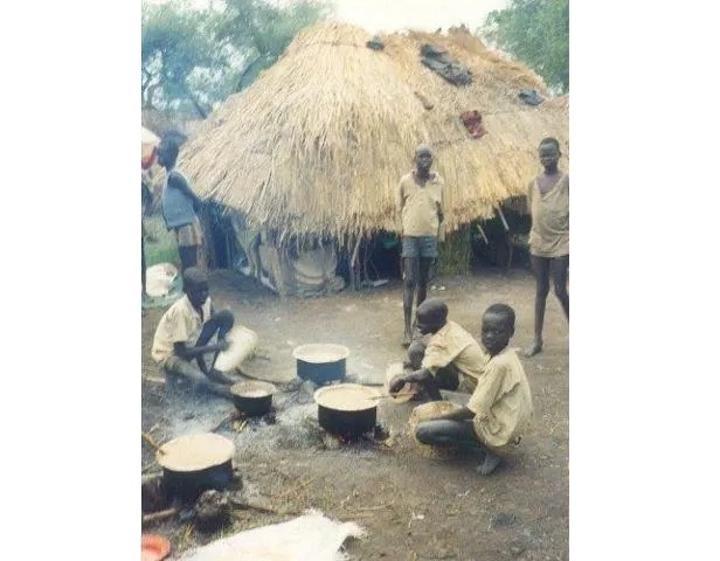Africa-Press – South-Sudan. Polataka village in Magwi County of Eastern Equatoria State, holds a historical meaning to thousands of young South Sudanese children commonly known as the lost boys, mobilized to join the struggle for independence in the 1980s.
About 4,000 children mobilized or compelled to fight marginalization against Sudan’s southern regions, but who were too young to fight, were taken to Polataka and admitted to elementary and secondary schools established by the SPLA.
The Red Army members, most of whom are now educated and accomplished individuals living in the diaspora, believe Polataka holds a symbolic meaning in their lives, as it was the place where they started school.
The area was also a strategic local town for the SPLM/A as a place to rehabilitate a generation of war, through education and military missions.
“Polataka to us was the beginning of our journey as many of us come to different parts of Sudan by then and most of us were boys and if there were some girls, they were daughters of teachers and administrators,” said Jok Gai, the chairperson of Polataka Face Foundation.
“While in Polataka, we were given some survival training to protect ourselves compared to Payindu, which was purely military.”
Mr. Gai said the organization was responsible for their education, said the organization was believed to be the new dawn for the seeds for New Sudan.
“Polataka holds an enormous significance in their lives,” Mr. Gai said, adding that 28 of them studied in Polataka, out of which most of them are currently master holders, who contribute to capacity building.
On 17th May 2024, the Lost Boys visited Polataka purposely to recreate and reunite with their past – more than 30 years since they departed to different parts of the world.
The visit was a chance to reconnect to the Acholi community for hosting them during the war at their tender ages without parents.
Gai said the welcoming of the Polataka boys was so impressive that the host community welcomed them with joy and love.
“This was so emotional for us and the community, the reunion after 30 years to get to know what we were doing, and to reconnect us with the Acholi community,” he added.
“The community welcome us with dances, prepared nice food, thanksgiving, and Prayers from the Catholic church.”
To the former Red Army colleagues, Polataka was a place to recall their co-existence. During their home return, they met and recognized several elders including a chief, who was a young man by then.
One of them recall that classrooms were of different functions to them, as they study in them at day time and use them as sleeping avenues at night.
He added that Polataka remains the same as it was, except for the fact that the indigenous communities are practicing farming activities unlike 34 years ago.
The Red Army members have currently embarked on a fundraising to build Polataka schools and practice farming in the area to give back to the Acholi community.
The visit to Polataka was to commemorate the 41st anniversary of SPLM/A Day on 16th May 2024.
For More News And Analysis About South-Sudan Follow Africa-Press






